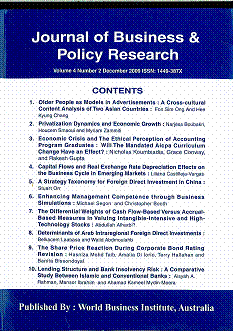July
2017

July 2017 (Journal of Business and Policy Research)
Total Articles - 7
